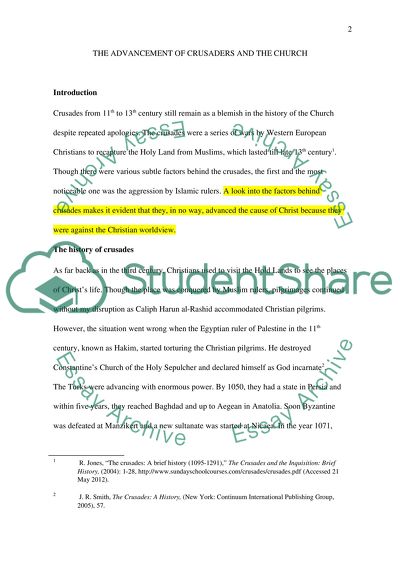Cite this document
(“The Advancement of the Crusaders and the Church Research Paper”, n.d.)
The Advancement of the Crusaders and the Church Research Paper. Retrieved from https://studentshare.org/religion-and-theology/1451343-the-advancement-of-the-crusaders-and-the-church
The Advancement of the Crusaders and the Church Research Paper. Retrieved from https://studentshare.org/religion-and-theology/1451343-the-advancement-of-the-crusaders-and-the-church
(The Advancement of the Crusaders and the Church Research Paper)
The Advancement of the Crusaders and the Church Research Paper. https://studentshare.org/religion-and-theology/1451343-the-advancement-of-the-crusaders-and-the-church.
The Advancement of the Crusaders and the Church Research Paper. https://studentshare.org/religion-and-theology/1451343-the-advancement-of-the-crusaders-and-the-church.
“The Advancement of the Crusaders and the Church Research Paper”, n.d. https://studentshare.org/religion-and-theology/1451343-the-advancement-of-the-crusaders-and-the-church.


